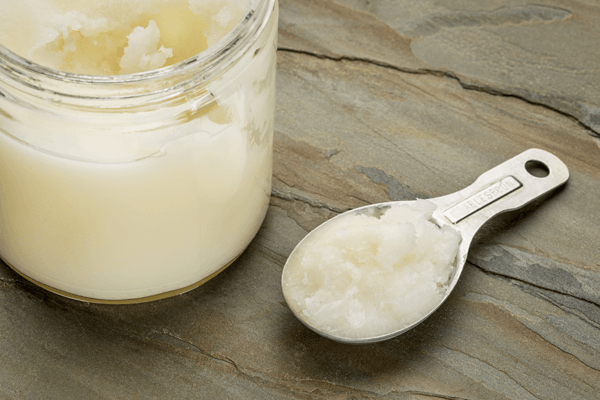
The American Heart Association (AHA) recently came out with a presidential advisory that coconut oil should be avoided for heart health due to its saturated fat content. Meanwhile, many people in the natural medicine community have been promoting coconut oil as a great way to lose weight based on an extrapolation of research done by Marie-Pierre St-Onge, Ph.D. at Columbia University. So where is the truth? The answer is somewhere in the middle.
Coconut Oil & Saturated Fats
It’s important to note that saturated fats got a bad reputation in part due to hydrogenated fats (also known as trans fats) which are in things like margarine and many processed foods. The American Heart Association previously recommended using these hydrogenated oils instead of butter. The association has since changed this recommendation based on overwhelming evidence that trans fats cause heart disease even in small amounts. Naturally saturated fats got caught up in the middle of this debate. In response to this controversy, some people started to question whether saturated fatsare not as bad for you as the AHA said they were and some people started to say that saturated fats were beneficial for weight loss and heart health. Bloggers recommended adding coconut oil to coffee and eating as much as possible.
This is yet another example of the echo chamber of the internet where one person says something based loosely (sometimes very loosely) on research (sometimes bad research) then a bunch of other people repeat it and then it becomes “fact.” We have to be vigilant about this dynamic and be sure to consult resources that look critically at the research and avoid grand claims about certain foods, herbs, or nutrients. In other words, there are healthy foods and nutrient dense foods that are great to add to your diet but there is no one food that is a cure-all or that has magical weight-loss properties (even though we may wish that there were such a food).
Is Coconut Oil a Healthier Option?
An article from the Harvard Health blog addresses the argument that people who live in tropical climates and eat coconuts are healthier so we should try to eat more coconuts. The problem with this argument is that there are many factors at play including physical activity and other aspects of dietary intake.
Another informal article from NY Magazine outlines how the diet industry “extrapolated
Alternatives to Coconut Oil?
The take home message here is that coconut oil is a dramatic step up from margarine and it’s a good oil for cooking as well as a fantastic skin moisturizer, but that many of the health claims that have come out in the past few years are overblown. The fats that are most well-supported by research for heart health and weight management are monounsaturated fats like olive oil and avocados, as well as, polyunsaturated fats from foods like salmon, sardines, walnuts, and flaxseeds.
The second take-home message is that when reading about research, it is important to be careful about your sources. Some of my favorite sources include Fooducate, Harvard Nutrition Source, and the Linus Pauling Institute.
With all of the “health” information out there, it can be hard to translate what is best for you. If you want help figuring out what is going to work best for your unique health situation and your personal health goals, call us at Third Stone Health – we can help you!



